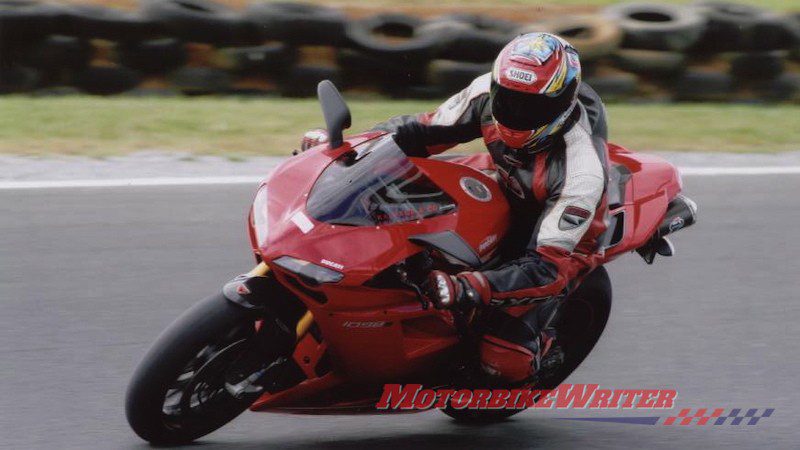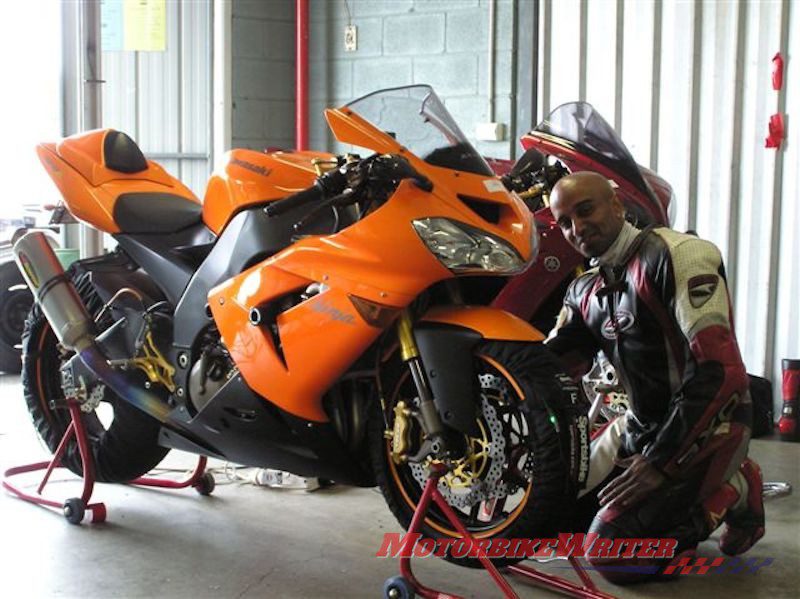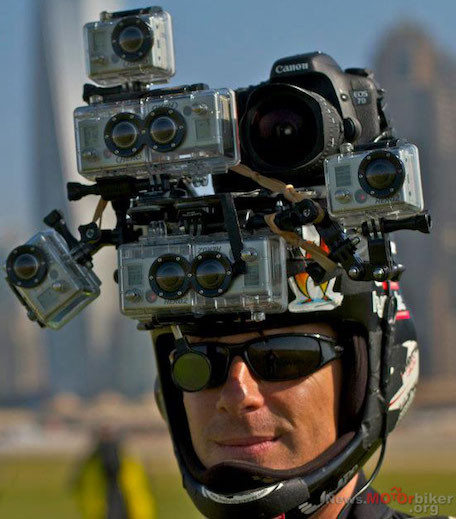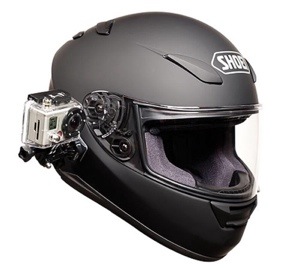NSW Police are charging riders with traffic offences based on GoPro video evidence obtained from other riders, says Sydney lawyer and Ducati 1098S rider Chris Kalpage.
There have been many incidents of riders being charged after self-incriminating evidence was found on their GoPro footage, mobile phone data, GPS and even bike data loggers.
However, Chris says he knows of at least two occasions where NSW Highway Patrol have sifted through the GoPro video of riders to find offences by other riders they may have been following.
He says these riders have been fined for speeding, crossing unbroken and double lines, wheelies, etc.
GoPro evidence
“I have had matters where a person may spend the day riding with their GoPro videoing their heroics coming up behind other riders who unknowingly may be transgressing,” says Chris, 61, who has been riding since he was 15.
“The rider with the GoPro is spotted at the end of the day by police and pulled over for some transgression that the officer has seen and confiscate their GoPro.
“Subsequently they play the video back at the station and then pay visits to anybody they see on the video.
“The police will then attend the premises of the registered owners of the bikes that they have seen on the videos and place a notice of demand asking that they identify who the rider was at the relevant time.”

Police rights
Chris says police may be within their legal rights to confiscate your GoPro or any other device if “certain prerequisites exist”.
In some places, such as America, police may first have to obtain a search warrant. In Australia, they don’t, so long as the search is lawful.
If police conduct a lawful search, they can seize your camera, SD card, phone, GPS or bike data.
A lawful search is where you give police permission to search you or when the officer has a “reasonable suspicion” that you could have an item containing evidence of an offence.
A crash is a situation where police might exercise their right to collect relevant evidence from victims, offenders and bystanders.
Riders’ rights

Chris says NSW Police are going to the home of the registered owners of bikes they have seen on video and formally demanding they identify the rider at the relevant time.
Of course, he advises riders approached by police to identify themselves to first contact their lawyer.
“They often wont show you the video and you will have to take it on faith that you were the relevant bike that was seen on someone’s GoPro footage,” he says.
“In the absence of your election the police have no evidence as to who the rider may have been.”
Chris says it could be difficult for police to substantiate a speeding offence based on the video of a following rider.

“It may be that the speedo of the GoPro rider’s bike can be seen but then it would amount to whether the rider is speeding to catch up with the bike in front or is keeping a consistent distance, and visual over a reasonable period of time,” he says.
“Similarly how do we know whether the GoPro rider’s speedo is accurate? After all, many of us change the sprockets of our bikes which can affect the speedo accuracy.”
He advises that there are many factors in video GoPro evidence that may be challenged, including the legality of the seizure of the evidence.
If you have any questions about this topic or other traffic-related matter, you can ask Chris by leaving your question in the comments section below.



